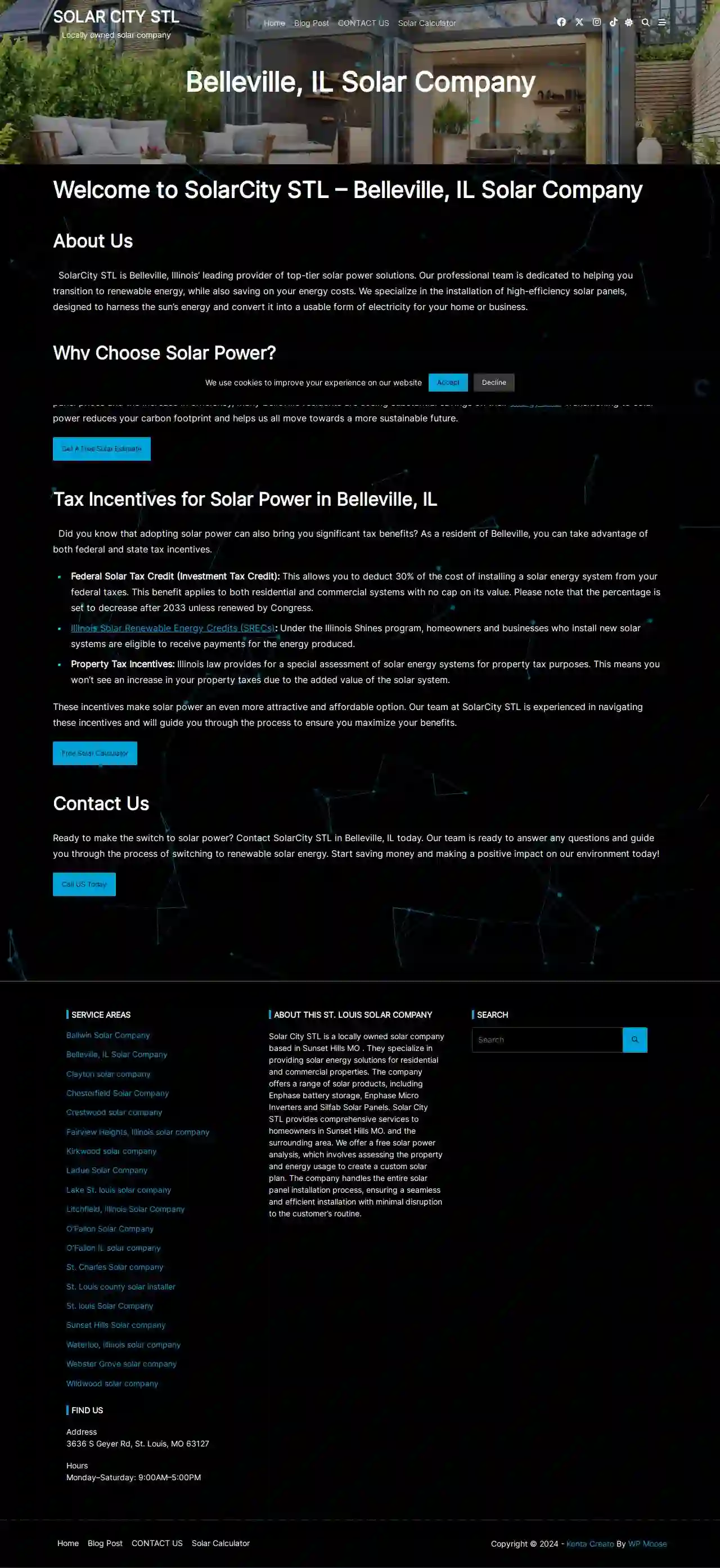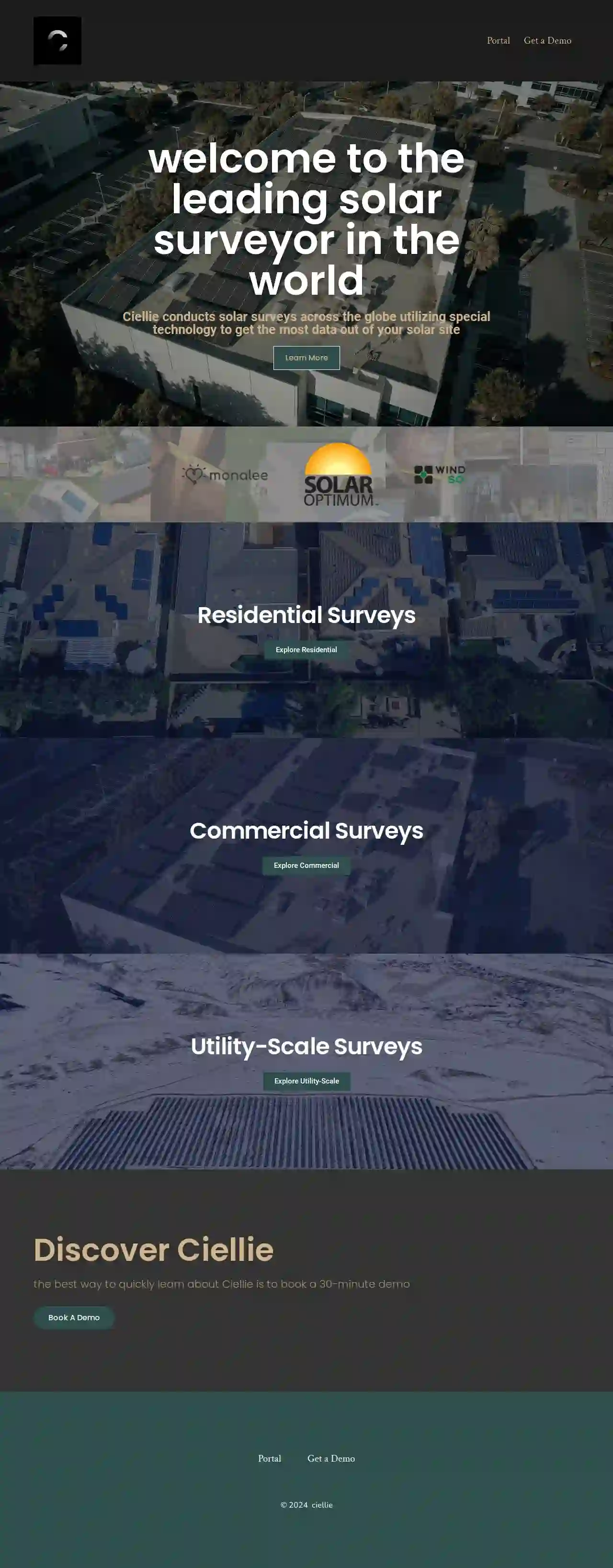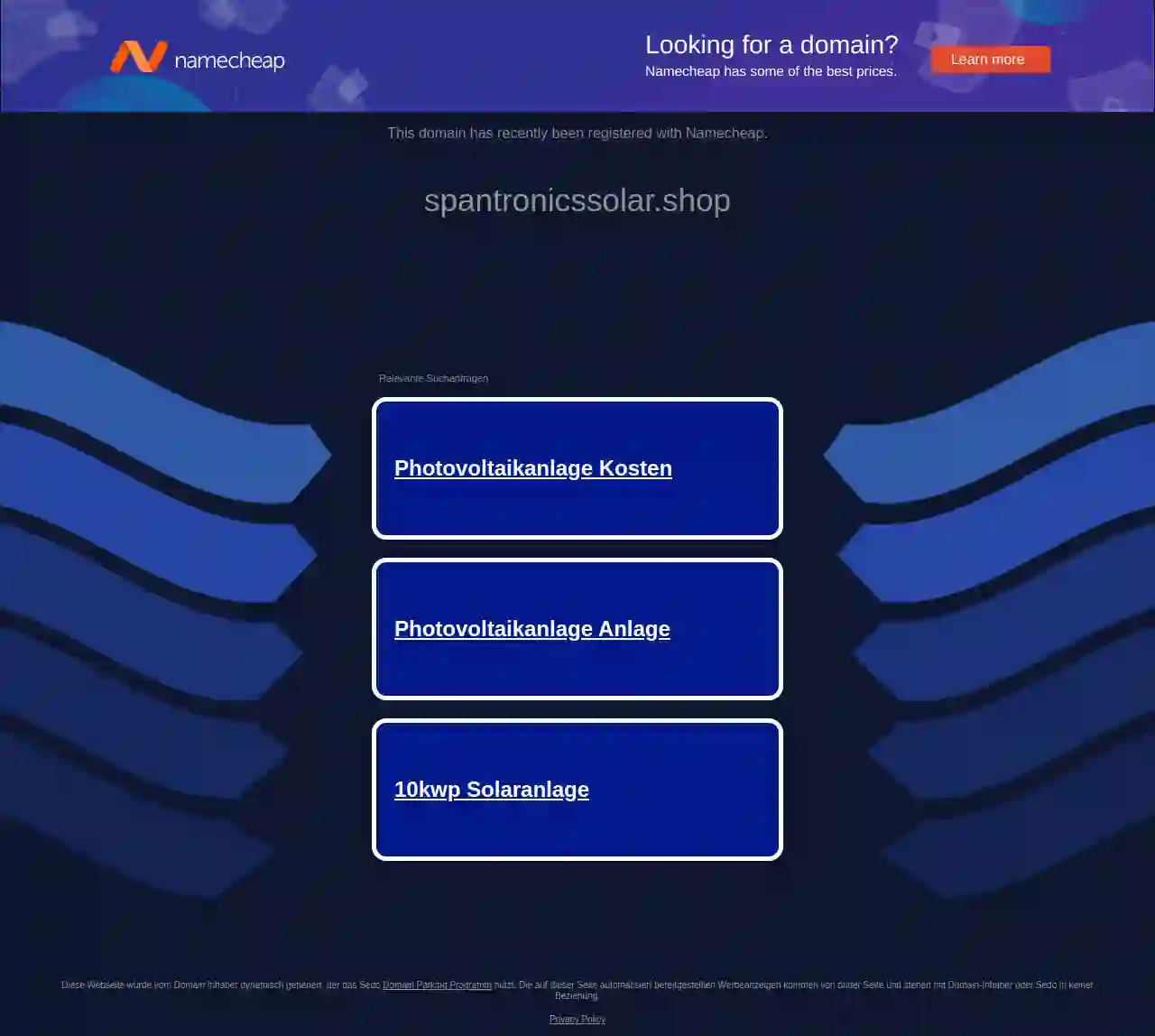Solar Installers Northbrook
Top Solar Panel Installers in Northbrook
Get up to 3 Residential Solar Installers quotes for your project today! Compare profiles, reviews, accreditations, portfolio, etc... and choose the best deal.

ENGIE North America
57 reviewsNew York, NY, USA, 123 Main St, 10001, USEngie North America is a leading provider of cost-effective and sustainable energy solutions. With a focus on renewables, energy supply, and infrastructure upgrades, they aim to accelerate the decarbonization of customers. Their expertise spans solar, wind, storage, and wholesale energy marketing, with a commitment to net zero leadership.
- Services
- Why Us?
- Accreditations
- Our Team
- Testimonials
- Gallery
Get Quote
Solar City STL Illinois
3636 South Geyer Rd Ste 100, St. Louis, MO, 63127, USSolarCity STL is Belleville, Illinois’ leading provider of top-tier solar power solutions. Our professional team is dedicated to helping you transition to renewable energy, while also saving on your energy costs. We specialize in the installation of high-efficiency solar panels, designed to harness the sun’s energy and convert it into a usable form of electricity for your home or business.
- Services
- Why Us?
- Accreditations
- Our Team
- Testimonials
- Gallery
Get Quote
Illinois Solar Services
Washington, IL, USA, 123 Solar Street, 62090, USIllinois Solar Services is a locally owned and operated company established to help residents, businesses, farmers, and municipalities become energy independent and save money long term. With inflation lessening supply by shutting down energy plants — along with increased demand for energy — utility charges are continuing to rise. The answer is simple: Use state-of-the-art equipment available to access the sun and supply your own energy. Take control of your utility expenses with the best technology, financing, and warranty.
- Services
- Why Us?
- Accreditations
- Our Team
- Testimonials
- Gallery
Get Quote
RxSun
4.878 reviewsSuite 100, Chicago, IL, 123 Solar Street, 60601, USRxSun is a full service residential solar company helping homeowners throughout Illinois, Michigan, Wisconsin, and Florida. Our NABCEP certified professionals are here to walk you through every step of the process, from design to installation to savings.
- Services
- Why Us?
- Accreditations
- Our Team
- Testimonials
- Gallery
Get Quote
Halo Solar LLC
4.923 reviewsGoodfield, IL, USA, 123 Solar Lane, 61742, USHalo Solar is a professional, local, and certified Solar Energy expert. Our team of dedicated professionals with advanced degrees in renewable energy and solar energy systems is here to provide you the necessary information to make an appropriate and educated decision to determine if solar energy is right for you.
- Services
- Why Us?
- Accreditations
- Our Team
- Testimonials
- Gallery
Get Quote
Ciellie
Chicago, USCiellie conducts solar surveys across the globe utilizing special technology to get the most data out of your solar site. It offers residential, commercial, and utility-scale surveys. The best way to quickly learn about Ciellie is to book a 30-minute demo.
- Services
- Why Us?
- Gallery
Get Quote
Route 66 Solar
4.976 reviews123 Solar Way, Suite 100, Springfield, 62704, USRoute 66 Solar is a local, family-owned solar installation company dedicated to providing high-quality solar installation services for homes and businesses. They offer a range of benefits including energy independence, carbon footprint reductions, tax savings, and property value increases. With extensive knowledge of federal/local solar incentives, they help customers qualify for a range of incentives including the Investment Tax Credit (ITC), Illinois solar rebates, and net metering. They provide 24/7 monitoring to ensure the PV installation delivers all the benefits.
- Services
- Why Us?
- Accreditations
- Our Team
- Testimonials
- Gallery
Get Quote
StraightUp Solar of Bloomington
4.959 reviews505 N Main St, Suite A, Bloomington, IL, 61701, USStraightUp Solar is a solar installation company in Bloomington, IL, that believes in empowering neighbors to take control of their energy with clean solar options. With over 2,800 solar panel arrays installed under the same ownership for over a decade, their team of values-driven, experienced, and licensed professionals manage every aspect of residential or commercial solar installation projects, from design to build to maintenance.
- Services
- Why Us?
- Accreditations
- Our Team
- Testimonials
- Gallery
Get Quote
Solar Enterprises USA
Chicago, USThis domain has recently been registered with Namecheap. spantronicssolar.shop This webpage was dynamically generated by the domain owner using the Sedo Domain Parking Program. The automatically generated ads on this page come from third parties and are not associated with the domain owner or Sedo.
- Services
- Why Us?
- Gallery
Get Quote
Tick Tock Energy, Inc.
4.718 reviews800 E. Fayette Ave., Effingham, 62401, USTick Tock Energy helps individuals and business take control of their energy. We help you Reduce utility costs through energy-efficiency, Produce your own energy with solar and wind power, and Manage your energy to lower consumption and utility costs. Discover who we are or get in touch today to learn more.
- Services
- Why Us?
- Accreditations
- Our Team
- Gallery
Get Quote
Over 4,210+ Solar Businesses registered
Our solar pros operate in Northbrook & surrounding areas!
SolarCompaniesHub has curated and vetted the Best Solar Companies arround Northbrook. Find a top & trustworthy contractor today.
Frequently Asked Questions About Solar Installers
- System size (measured in kilowatts, or kW)
- Type of solar panels (monocrystalline, polycrystalline, thin-film)
- Roof complexity (pitch, size, obstructions)
- Labor costs in your area
- Available incentives and rebates
- Contact SolarCompaniesHub: We make it simple to connect with reputable Solar Installers in your area.
- Get Free Quotes: Request free quotes from multiple installers to compare prices, systems, and warranties.
- Schedule a Site Assessment: A qualified installer will visit your property to assess your roof, energy needs, and discuss your goals.
- Review Your Proposal and Contract: Carefully review the proposed system, financing options, and warranties before signing a contract.
- Installation and Activation: Once the contract is signed, the installer will obtain necessary permits, schedule the installation, and activate your solar system.
- Draw electricity from the grid when your solar panels aren't producing enough power (e.g., at night)
- Sell excess solar electricity back to the grid through net metering.
- Tax Credits: Reduce your income tax liability based on the cost of your solar system.
- Rebates: Direct cash payments or discounts on the purchase of a solar energy system.
- Net Metering: Allows you to sell excess solar electricity back to the grid for credits.
- Renewable Energy Certificates (RECs): Tradeable credits representing the environmental attributes of your solar energy generation.
What is the average cost of solar panel installation in USA?
How do I get started with solar panel installation?
What is the difference between grid-tied and off-grid solar systems?
Are there any financial incentives for going solar?
What is the average cost of solar panel installation in USA?
- System size (measured in kilowatts, or kW)
- Type of solar panels (monocrystalline, polycrystalline, thin-film)
- Roof complexity (pitch, size, obstructions)
- Labor costs in your area
- Available incentives and rebates
How do I get started with solar panel installation?
- Contact SolarCompaniesHub: We make it simple to connect with reputable Solar Installers in your area.
- Get Free Quotes: Request free quotes from multiple installers to compare prices, systems, and warranties.
- Schedule a Site Assessment: A qualified installer will visit your property to assess your roof, energy needs, and discuss your goals.
- Review Your Proposal and Contract: Carefully review the proposed system, financing options, and warranties before signing a contract.
- Installation and Activation: Once the contract is signed, the installer will obtain necessary permits, schedule the installation, and activate your solar system.
What is the difference between grid-tied and off-grid solar systems?
- Draw electricity from the grid when your solar panels aren't producing enough power (e.g., at night)
- Sell excess solar electricity back to the grid through net metering.
Are there any financial incentives for going solar?
- Tax Credits: Reduce your income tax liability based on the cost of your solar system.
- Rebates: Direct cash payments or discounts on the purchase of a solar energy system.
- Net Metering: Allows you to sell excess solar electricity back to the grid for credits.
- Renewable Energy Certificates (RECs): Tradeable credits representing the environmental attributes of your solar energy generation.